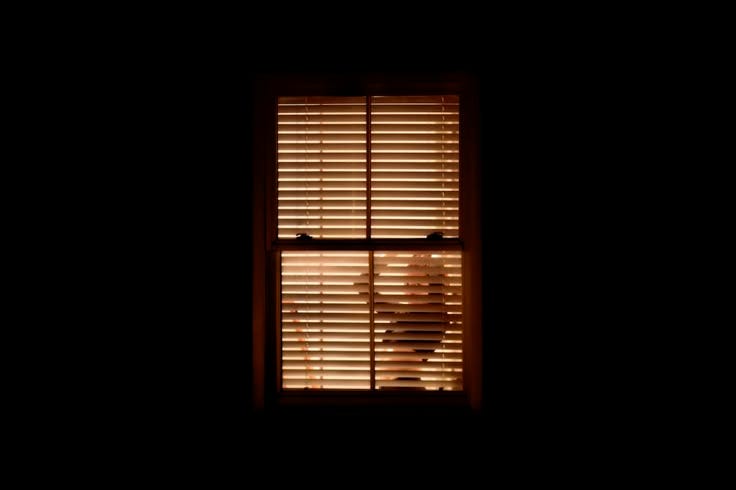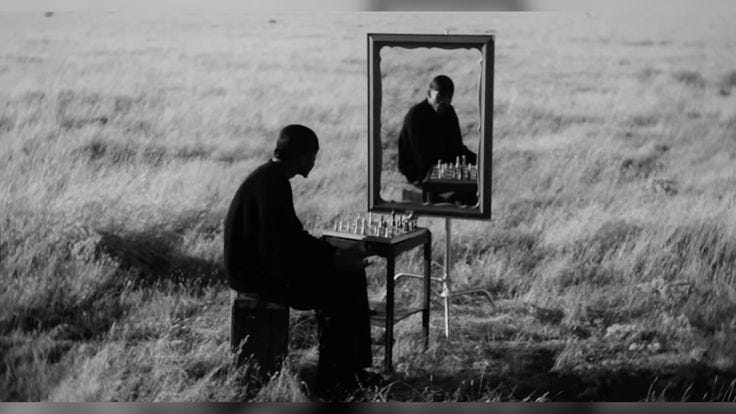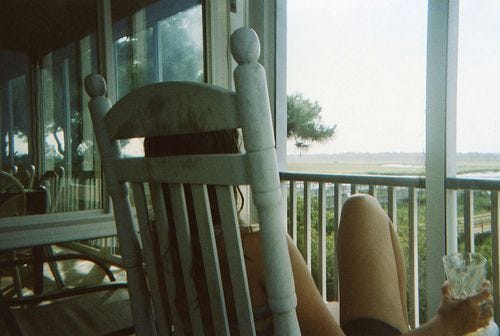there’s a kind of emotional distance that creeps in quietly. it doesn’t always announce itself with sadness or isolation- sometimes, it just feels like flatness. like being in the room but not fully in your body. like answering a question before you’ve even realised you were asked. you get through your day, you say “i’m good,” and you probably are- just in a distant, untouchable kind of way.
people often mistake this for emotional detachment. and maybe it is. but often, it’s something more layered. it’s not that the feelings aren’t there. it’s that they’ve been pushed somewhere deeper. and that’s not the same as being numb. that’s what protection looks like.
the mistake people often make is assuming that someone who isn’t expressive, or vulnerable, or quick to open up, is detached. that they don’t care, or don’t feel, or don’t want connection. but for many, emotional distance isn’t about avoidance- it’s about preservation. it’s what happens when someone has been through too much too quickly, when feelings came in tidal waves, and somewhere along the way, their body decided: not again. so it learned to keep things at arm’s length. not because they’re incapable of emotion, but because they’ve felt too much of it, for too long, with too little support.
it becomes a kind of autopilot. not cold, just calibrated for survival. it’s the instinct to keep conversations surface-level, to shrug instead of explain, to “let it go” because unpacking it would take too much energy. and most people don’t notice it in themselves until one day, they realise joy doesn’t feel as bright anymore. or sadness doesn’t sting the way it used to. or love, even when it’s real, doesn’t land quite as deeply as it should.
the truth is, emotional self-protection isn’t a flaw. it’s often a learned response- a brilliant one, honestly. it’s the mind’s way of saying you’ve held too much and you need a pause. but if it lingers too long, that pause can become a permanent dimmer switch on life. and what once kept you safe can start keeping you from fully living.
a lot of people walk around thinking they’re cold or emotionally unavailable when really, they’ve just learned how to survive. survival, for some, means compartmentalising. it means learning to stay calm when things are chaotic. it means feeling things later, if at all. so no- not detached in a cruel, careless way. detached in a self-protective way.
there’s a difference.
it can show up subtly: you’re talking to your parent, and they say something that would’ve hurt you five years ago- but now it barely lands. you’re in a relationship, and your partner is upset, but your body doesn’t feel anything. you care, but you can’t access the feeling. or maybe a friend cancels plans, and you immediately say “no worries” because honestly, you didn’t feel connected enough to be disappointed anyway.
over time, this becomes normal. you don’t react strongly to anything- not the good, not the bad. you stop crying at things that once moved you. you stop getting excited about things you used to look forward to. even love, when it’s real and right in front of you, can feel like watching it happen behind glass.
that’s emotional distance. and in some seasons, it’s necessary. when you’ve been through too much- heartbreak, grief, family dysfunction, betrayal, the body protects itself however it can. and sometimes that means creating space between you and your feelings so they don’t overflow and wreck you.
that’s not dysfunction. that’s adaptation.
but protection and disconnection aren’t the same thing. one is about safety. the other is about escape. one is temporary, and eventually lets you soften. the other starts to calcify. it builds walls instead of boundaries. and the longer you live in that state, the harder it is to tell whether you’re actually okay- or just emotionally absent.
it doesn’t mean you’re cold. it doesn’t mean you don’t care. but when everything feels muted- even joy, even desire, even closeness, that might be a sign that what once protected you is now keeping you from experiencing your life.
it can be hard to notice because this kind of detachment doesn’t always look like shutting down. sometimes it looks like being reliable. productive. even kind. you’re just not available. you go through the motions of connection, but you’re always slightly out of reach. you talk to your mum every week, but you haven’t told her how you really feel in years. you sleep beside someone, but your heart is still somewhere else. you have people who love you, but you’re never fully convinced they see you. and when they try, when they get too close, part of you pulls away without even thinking.
emotional detachment can feel like:
a tightness in your chest, but you don’t know why
a delay between something happening and your ability to react
feeling tired, even after resting
struggling to articulate your needs because you’ve buried them for so long
feeling safest when no one expects too much from you emotionally
it’s not just a “you” problem. it’s something many people carry, especially those who’ve had to hold things alone for too long. childhoods where emotions weren’t safe. relationships where vulnerability got used against you. friendships that disappeared the moment you asked for more. the body remembers all of it. so of course it protects itself.
but if you’re starting to wonder why nothing feels quite real anymore, or why your relationships feel like routines instead of refuge -that’s worth listening to.
protection is sacred. but so is connection.
it’s about asking different questions. not, “why am i like this?” but:
is this still serving me?
what would it feel like to trust something again, even just a little?
what’s one small part of me that’s ready to feel- not everything, just something?
you don’t have to force vulnerability. you don’t have to spill everything. but maybe you start with letting one moment affect you. letting someone’s words land. letting a good thing feel good- without pulling away before it sticks.
because you’re not broken. you’re not incapable of feeling. you’re not too far gone. you just protected yourself so well, for so long, that now you’re learning how to come back. and it’s okay if it takes time.
if this resonated with you, i’d love to hear what emotional protection has looked like in your own life- or what it’s looked like to soften. you can comment or just sit with the questions for a bit. either way, you’re not alone in this.





“The body remembers everything.”
That line hits hard because, for me, it’s the clearest sign that I’ve been emotionally protecting myself ..maybe even desperately so. Lately, my body has been breaking down in ways I can’t ignore. I went for medical tests, and everything came back “normal,” but I don’t feel normal. I don’t look well. And deep down, I know it’s not just physical, it’s my mind waving a white flag.
But here’s the thing: I can’t afford to “fix” anything right now, not emotionally, physically and not financially. So my body has taken over. It’s gone into survival mode, doing whatever it can to keep me functioning. That’s the only energy I have left… just enough to keep going.
And that’s what emotional protection means to me. Tbh I used to think I was just detached or numb or distant by nature, but reading that essay made me realize this is what emotional self-protection looks like when your body is carrying more than it was ever meant to.
I’d like to soften but for now I don’t think I can afford to
Protecting